About 6G-LEADER
Mission
6G-LEADER aims to support the RAN’s transition toward AI-empowered, spectrum-efficient, and open 6G networks, designing a flexible and intelligent architecture for enhanced wireless connectivity.
The project will advances wireless communications and signal processing technologies enabling smarter, faster, and greener wireless systems built on openness, interoperability, and innovation.
Vision
We will provide European-lead innovation, combining AI-driven algorithms for 6G PHY and MAC, new spectrum bands, semantics and energy-efficient design.
Our vision is to create a future-ready and open RAN capable of adapting dynamically to diverse service needs while optimising the use of spectral and energy resources.

Objectives

Lead global research and development in next-gen wireless technologies.

Enable cross-industry collaboration to accelerate the deployment of 6G
Foster the development of sustainable, energy-efficient technologies for the future of connectivity.
Develop AI/ML-driven PHY-layer techniques for predictive and resource-efficient operation
Provide new multiple access schemes, going above and beyond current orthogonal solutions
Design flexible array (FA) and reconfigurable intelligent surface (RIS) architectures for adaptive and efficient 6G RANs
Exploit the FR3 spectrum (7–24 GHz) to boost capacity and enable FR1/FR3 coexistence
Introduce goal-oriented and semantic communication methods to enhance data relevance and network responsiveness
Validate innovations through five Proof-of-Concepts (PoCs) demonstrating measurable efficiency, scalability, and interoperability
Contribute to standardisation in O-RAN Alliance, ETSI, ITU, and 3GPP to reinforce European leadership in 6G
Pillars
Innovation
Pioneering AI/ML-assisted signal processing, resource management, semantic communication, and FR3-based transmission, paving the way for high-capacity, low-latency 6G RANs.
Collaboration
A consortium of universities, research institutes, and industry partners working together under the SNS JU to deliver impact and interoperability across Europe.
Efficiency
By balancing spectral and energy efficiency, 6G-LEADER explores adaptive algorithms and an O-RAN-based architecture that maximise network performance while minimising resource usage.

Openness
Following O-RAN principles, the project promotes open interfaces, modular design, and transparent integration of AI/ML-driven functionalities.

Impact
Through demonstrators, standard contributions, and open-access results, 6G-LEADER will strengthen Europe’s position in the race to shape the next-generation of mobile networks.
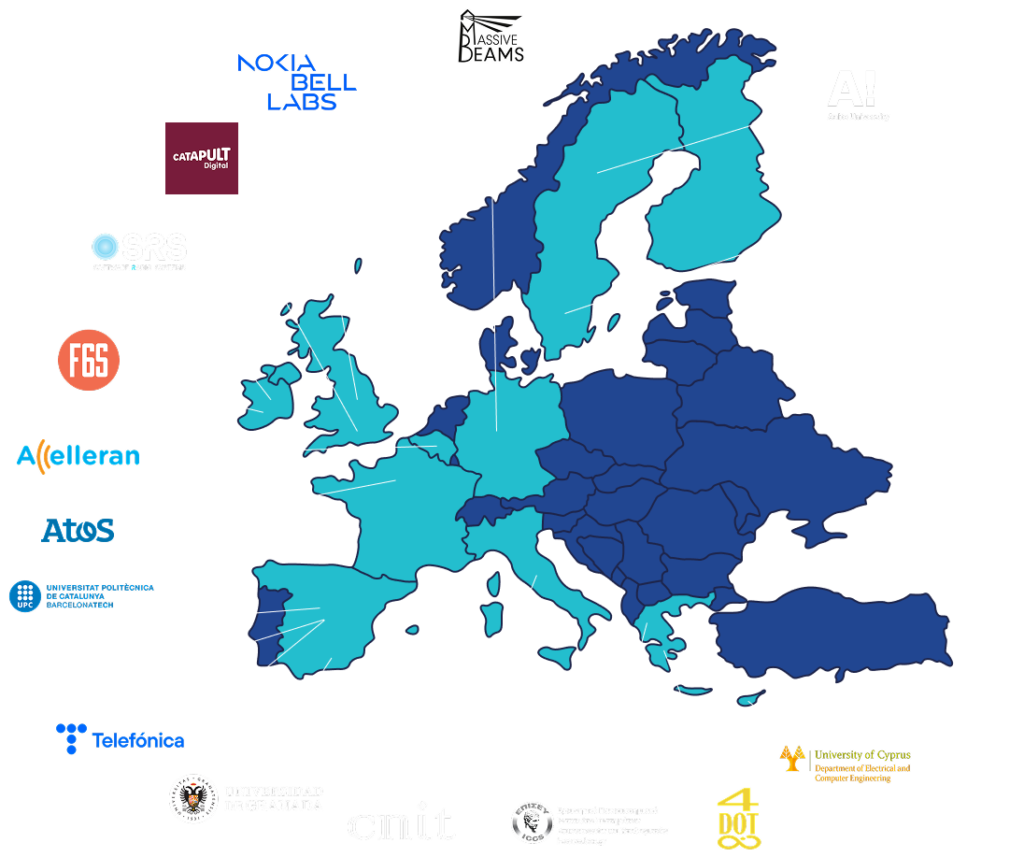
The 6GLEADER project is organized into distinct phases designed to drive the successful development of 6G technologies. Our comprehensive work plan includes:

Each phase is designed to contribute to the final goal of establishing a robust, scalable 6G ecosystem that will serve as the foundation for future digital transformation.
Our Impact
The 6G-LEADER project is more than just advancing technology – it’s about creating meaningful, lasting impacts on society, the economy, and the environment. Our vision focuses on leveraging 6G to build a sustainable, equitable, and interconnected future for everyone.
Scientific & Technological
6G-LEADER advances AI/ML-driven RAN design, semantics-enhanced communications, novel RIS and FA designs, and FR3 spectrum utilisation, contributing open publications and standardisation deliverables to the global 6G community.

Environmental
Energy-aware design and adaptive hardware reduce the operational footprint of future networks, promoting sustainable connectivity.

Economic & Societal
Through efficient spectrum use and open innovation, 6G-LEADER supports cost-effective deployment models, strengthens European competitiveness, and promotes digital inclusion.

Join us in shaping the future of wireless
The Partners
The 6G-LEADER consortium unites Europe’s leading academic, research, and industrial partners to turn AI, advanced radio, and semantics into concrete 6G breakthroughs.
Together, we are building a scalable, efficient, and open 6G RAN that will power the next decade of connectivity.
Project Coordination
F6S

Academy & Research:
University of Cyprus (Technical Coordination)

Aalto University
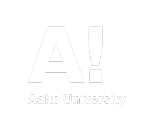
Aalto University is a multidisciplinary research university located in Finland. It was established in 2010 through the merger of three leading Finnish universities: Helsinki University of Technology, the Helsinki School of Economics, and the University of Art and Design Helsinki. Aalto University aims to shape a sustainable future by making research breakthroughs and creating innovative solutions to global challenges. The university emphasizes the intersection of science, art, technology, and business to tackle complex societal issues. With six schools and campuses in Espoo and Helsinki, Aalto University offers a diverse range of academic programs and promotes multidisciplinary collaboration. The university is known for its sense of community, culture of entrepreneurship, and commitment to academic excellence.
Universitat Politècnica de Catalunya

The Universitat Politècnica de Catalunya (UPC, www.upc.edu) is among the best Universities in Spain, with more than 4.100 teaching and research staff and 38.000 students. It aims at fostering the improvement of educational and research activities and greater transparency and accountability to society. It is currently offering 68 undergraduate degree programs, 62 master’s degree programs, 43 PhD programs, and 316 continuing-education programs. Ten of the master’s degree programs are under the Erasmus Mundus program, an international cooperation and mobility program in the field of higher education UPC is a leading research university in the areas of ICTs, Architecture and Civil Engineering, Mathematics and Statistics, Social, Human and Life Sciences among others. As for ICTs it counts on a large campus focused on Information and Communication Technology with more than 5000 students working on ICT related topics. It is located in Barcelona, Spain. UPC has a large experience and expertise in the management of EU projects, with a specific office for that purpose.
Linköping University

LIU is one of the major Swedish Universities with a strong international profile. LIU is one of the two poles of the Swedish Excellence Centre ELLIIT in ICT, funded by a Swedish Strategic Research Support. The Department of Computer and Information Science (IDA) was founded in 1983. It is one of the largest departments for computer and information science in northern Europe, with 190 employees of which 68 are faculty members (PhDs), including 26 full professors. Approximately 70 postgraduate students are enrolled in the department’s PhD programmes. Research at IDA covers a broad spectrum of topics from core computer science to applications, including theoretical computer science, programming environments, software engineering, real-time and embedded systems, artificial intelligence, information security, communication networks, databases, information systems, computational linguistics, cognitive science, interaction and service design, autonomous systems, and statistics.
University of Granada

The University of Granada’s commitment to quality research has placed it at the forefront of various national rankings. This commitment is channeled through funding for 346 research groups. Through the National Research Plan and other national plans and organizations, 165 research projects are supported, and the Ministry of Innovation, Science, and Business has subsidized 78 Projects of Excellence. Relations with the business community are maintained through the Research Results Transfer Office (OTRI). The Scientific Instrumentation Center (CIC) offers various research support services, especially focused on experimental disciplines. Collaboration in the development of international projects and the search for resources and partners is carried out through the International Projects Office (OPI). In addition to the research work of the departments, the UGR has 12 research institutes, plus other seminars and specific research centers that focus their work on different areas of knowledge.
Universidad Carlos III de Madrid

Universidad Carlos III de Madrid (UC3M) is a public university characterized by its strong international focus, the quality of its faculties, excellence in research and commitment to society. UC3M is a young institution but in a short time its achievements have placed it among the top universities in Spain. In 2009 UC3M was one of five Spanish universities selected as a Campus of International Excellence. It was the first university in Spain to adapt all of its degree programs to the European Higher Education Area, and it has the largest selection of bilingual Undergraduate Degrees in Spain. UC3M is committed to open knowledge and aspires to be an “Open Knowledge” institution.
Digital Catapult

Digital Catapult is a deep tech innovation organisation. We help businesses grow by applying deep tech. We partner with government, industry and academia to find solutions that benefit the UK. We show what is possible, positive and productive with advanced technology.
We are nearly 300 innovators strong with reach across London, the South West, the North East and Northern Ireland.
Digital Catapult’s capabilities and expertise are focused around significant challenges and opportunities facing the UK’s economy and society, where technology can play a major role in providing solutions.
CNIT

CNIT (National, Inter-University Consortium for Telecommunications, www.cnit.it) is a non-profit consortium bringing together 42 public Italian universities to perform research, innovation and education/training activities in the field of the Information and Communication Technology.
In the 6G-LEADER Project, CNIT participates with the Research Units based in Genova and Pisa
ICCS
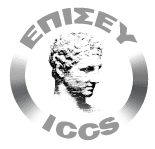
Founded in 1989, ICCS is an independent, non-profit research organization dedicated to advancing the values, mission, and strategic goals of the National Technical University of Athens (NTUA). Over the years, ICCS has exemplified the University’s commitment to scholarly excellence, fostering the integration of research and teaching. It has made significant contributions to Greece’s scientific achievements in computational science and engineering. Scientific research at ICCS is structured around various interdisciplinary thematic areas, including AI and Smart Systems, Hardware and Software, Computer Networks, Mobile Communications, Control and Automation, Power Production, Transport and Distribution, Energy, Climate, Biomedical and Biomechanics, Information Systems, Management and Decision Support, and Photonics. Our focus is on advancing scientific discovery and driving engineering innovation through cutting-edge, interdisciplinary computing research.
Industry Leaders & SMEs:
Nokia

Nokia Bell Labs is a world-renowned industrial research and scientific development organization. It has pioneered groundbreaking technologies and has been awarded 9 Nobel Prizes for its contributions to science and technology. Today its focus includes advancing 5G/6G, AI and software systems, automation, network fundamentals and semiconductor technology and devices.
Samsung

Samsung R&D Institute UK (SRUK) was established in 1996 as the first European R&D center outside of Korea and a division of Samsung Electronics (UK) Limited.
As a European Centre of Excellence based just West of London, we are able to leverage the cultural, financial, and innovative features of London. At SRUK we are more than a business. We are a global community, hiring and developing the best talent from around
the world with over 30 nationalities represented in our office. We are at the forefront of technology with new areas of focus in Communication Networks, Data Intelligence and On-device AI, a long with our already long established
Telefónica

Telefónica is one the world’s leading telecommunications service providers. The company offers fixed and mobile connectivity as well as a wide range of digital services for residential and business customers. With 393 million customers, Telefónica operates in Europe and Latin America. The company is listed on the Spanish stock market, New York and Lima.
ATOS
Software Radio Systems (SRS)

SRS is a globally recognized leader in trusted open software for mobile wireless networks. Their high-performance, portable, and scalable 4G and 5G RAN solutions are developed in-house, delivering complete L1/L2/L3 stacks from I/Q to IP.
SRS offers srsRAN Enterprise 5G, a full-stack RAN software solution designed for Private and Enterprise 5G. Featuring a modular and flexible architecture, it supports deployment options ranging from integrated small cells to cloud-native vRAN and Open RAN.
With a proven track record in the design, implementation, and commercial deployment of custom network solutions – including complex TN and NTN use cases – SRS enables customers to create innovative mobile wireless products and services.
For more information, visit www.srs.io.
Accelleran

Established in 2013 in Antwerp, Belgium, Accelleran builds Open Private 5G Network solutions that are as easy to deploy as WiFi, with real world deployments across multiple industry verticals. Our ecosystem of Open-RAN Radio Units support multiple frequency bands and power levels to suit your use case. Accelleran also has developed a RAN Intelligent Controller (RIC), which comes with an intuitive SDK, enabling the creation of innovative xApps/rApps, bringing benefits to both operators and private networks. These applications enhance RAN intelligence, with apps including energy saving and network optimisation.
Massive Beams

Massive Beams was founded with the goal to develop the leading development platform for O-RAN Radio Units. With 6G on the horizon, the importance of O-RAN is growing. It will create an open and transparent marketplace, allowing vendors around the world to deploy their 6G candidate technologies in real mobile networks.
However, the road ahead is not without its challenges. All the O-RU solutions available today are opaque, difficult to configure and time-consuming to. As we look to future 6G technologies, integrating them into O-RAN will be even more challenging when the hardware available today is already difficult to operate.
Massive Beams is filling this gap by providing the first Modular O-RAN Radio Unit Development Platform, MODRAD, specifically designed to help O-RAN vendors focus on their core competencies. MODRAD simplifies the integration of innovative future 6G technologies into O-RAN and enables a rapid transition from development platform to mass production of O-RUs – leading the way to the 6G future.
Four Dot Infinity

Four Dot Infinity (FDI) is a highly innovative SME located in Athens,
Greece and a proud 6G-IA and ADRA member, specialising in delivering
cutting-edge AI and telecom solutions. FDI’s personnel has an extensive
experience of more than 20 years on EU-funded projects and a robust
track record in R&D within European frameworks (FP6, FP7, H2020, HE,
5G-PPP, JU-SNS), with projects like 6G-LEADER, MARE, UNITY-6G, 6G-CLOUD,
MANOLO, CyclOps, ENACT, etc.
In 6G-LEADER, FDI will support UCY in the technical management of the
project, offering its industrial perspective, and lead the efforts on
designing and developing Wireless for AI schemes based on AirComp.

Stay Updated
on LinkedIn
Stay up-to-date with the latest advancements
and project milestones.
Let's Connect
on a 6G Level
We welcome your questions, collaboration ideas, and inquiries – let’s push the
boundaries of innovation together!


